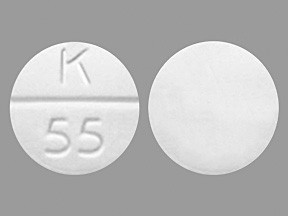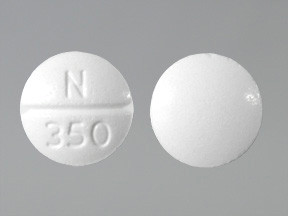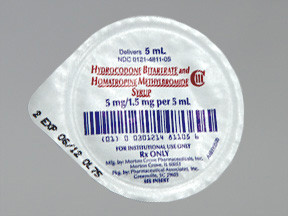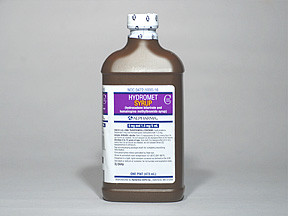HYDROCODONE/HOMATROPINE - ORAL
PHONETIC PRONUNCIATION: (HYE-droe-KOE-done/hoe-MAT-roe-peen)
COMMON BRAND NAME(S): Hycodan, Tussigon
GENERIC NAME(S): hydrocodone bitartrate/homatropine methylbromide
Uses
USES: This medication is used to relieve a dry cough usually caused by the common cold or other conditions as prescribed by your doctor. Relieving a cough helps you get more rest and sleep. This product contains 2 medications, hydrocodone and homatropine. Hydrocodone is an opioid cough suppressant (antitussive) that works on certain centers in the brain to stop the urge to cough. Homatropine belongs to a class of drugs known as anticholinergics. This medication is generally used for short-term treatment. It should not be used for persistent coughs from smoking or long-term breathing problems (e.g., asthma, emphysema), or for coughs with a lot of mucus or fluids (productive coughs), unless directed by your doctor. Do not use this product in children younger than 18 years. There is a risk of serious (rarely fatal) side effects, such as breathing problems. Cough-and-cold products do not cure colds. Cough due to a common cold often does not need to be treated with medicine. Ask your doctor or pharmacist about other ways to relieve cough and cold symptoms, such as drinking enough fluids, using a humidifier, or saline nose drops/spray.
How to use HYDROCODONE/HOMATROPINE - ORAL
HOW TO USE: Read the Medication Guide provided by your pharmacist before you start taking hydrocodone/homatropine and each time you get a refill. If you have any questions, ask your doctor or pharmacist. Take this medication by mouth with or without food, usually every 4 or 6 hours as needed or as directed by your doctor. The dosage is based on your age, medical condition, and response to therapy. Follow your doctor's directions closely. The manufacturer recommends that adults should not take more than 6 tablets or 6 teaspoons (30 milliliters) daily. If you are taking the syrup, measure the dose carefully using a special measuring device or spoon. Do not use a household spoon. Do not increase your dose or use this drug more often or for longer than prescribed. Your condition will not improve any faster, and your risk of side effects will increase. This medication may cause withdrawal reactions, especially if it has been used regularly for a long time or in high doses. In such cases, withdrawal symptoms (such as restlessness, runny nose, watering eyes, trouble sleeping, severe abdominal/muscle pain, nausea, vomiting, rapid breathing, and fast heartbeat) may occur if you suddenly stop using this medication. To prevent withdrawal reactions, your doctor may reduce your dose gradually. Consult your doctor or pharmacist for more details, and report any withdrawal reactions right away. Though it helps many people, this medication has a risk for abuse and may sometimes cause addiction. This risk may be higher if you have a substance use disorder (such as overuse of or addiction to drugs/alcohol). Take this medication exactly as prescribed to lower the risk of addiction. Ask your doctor or pharmacist for more details. When taken for a long time, this medication may not work as well and may require different dosing. Tell your doctor if this medication stops working well. Inform your doctor if your symptoms persist or worsen.
Side Effects
Precautions
Interactions
Overdose
Images

- color
- white
- shape
- round
- imprint
- K 55

- color
- white
- shape
- round
- imprint
- K 55

- color
- white
- shape
- round
- imprint
- N 350

- color
- white
- shape
- round
- imprint
- N 350
Reviews
Faq for HYDROCODONE/HOMATROPINE - ORAL
- Hydrocodone/homatropine is used to relieve coughs caused by the common cold or respiratory tract infections.
- Hydrocodone is an opioid cough suppressant that works in the brain to decrease the cough reflex. Homatropine is added to the medication to deter abuse, as high doses of hydrocodone can produce a euphoric effect.
- The most common side effects include drowsiness, dizziness, blurred vision, dry mouth, constipation, and nausea.
- Yes, hydrocodone is an opioid and can be addictive. It should be used with caution and under the guidance of a healthcare professional. Misuse or long-term use of this medication can lead to dependence or addiction.
- Hydrocodone/homatropine should be taken exactly as prescribed by your doctor. Usually, it is taken every 4 to 6 hours as needed. It can be taken with or without food, but it's advisable to take it with food or milk to minimize stomach upset.
- Yes, hydrocodone/homatropine can interact with certain medications, including but not limited to sedatives, tranquilizers, other opioids, certain antidepressants, antihistamines, and muscle relaxants. It's important to inform your doctor about all the medications you are taking to avoid any potential interactions.
- Hydrocodone/homatropine is generally not recommended for children under the age of 6 unless specifically prescribed by a doctor. The dosage and safety guidelines for children can vary, so it's crucial to consult a healthcare professional.
- It is not advisable to drink alcohol while taking hydrocodone/homatropine. Alcohol can enhance the sedative effects of the medication and increase the risk of side effects, such as dizziness, drowsiness, and difficulty breathing. Consult your doctor for specific guidance.
- If you miss a dose, take it as soon as you remember. However, if it is close to the time for your next dose, skip the missed dose and resume your regular dosing schedule. Do not double the dose to catch up.
Warning
WARNING: Taking hydrocodone/homatropine with other medications that may also cause drowsiness or breathing problems may increase your risk of very serious side effects, including death. To lower your risk, your doctor should have you take the smallest dose of hydrocodone/homatropine that works, and take it for the shortest possible time. See also Drug Interactions section. Get medical help right away if any of these very serious side effects occur: slow/shallow breathing, unusual lightheadedness, severe drowsiness/dizziness, difficulty waking up.
Disclaimer
IMPORTANT: HOW TO USE THIS INFORMATION: This is a summary and does NOT have all possible information about this product. This information does not assure that this product is safe, effective, or appropriate for you. This information is not individual medical advice and does not substitute for the advice of your health care professional. Always ask your health care professional for complete information about this product and your specific health needs.



No Reviews Yet